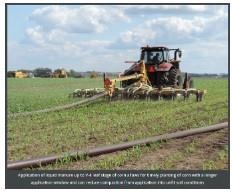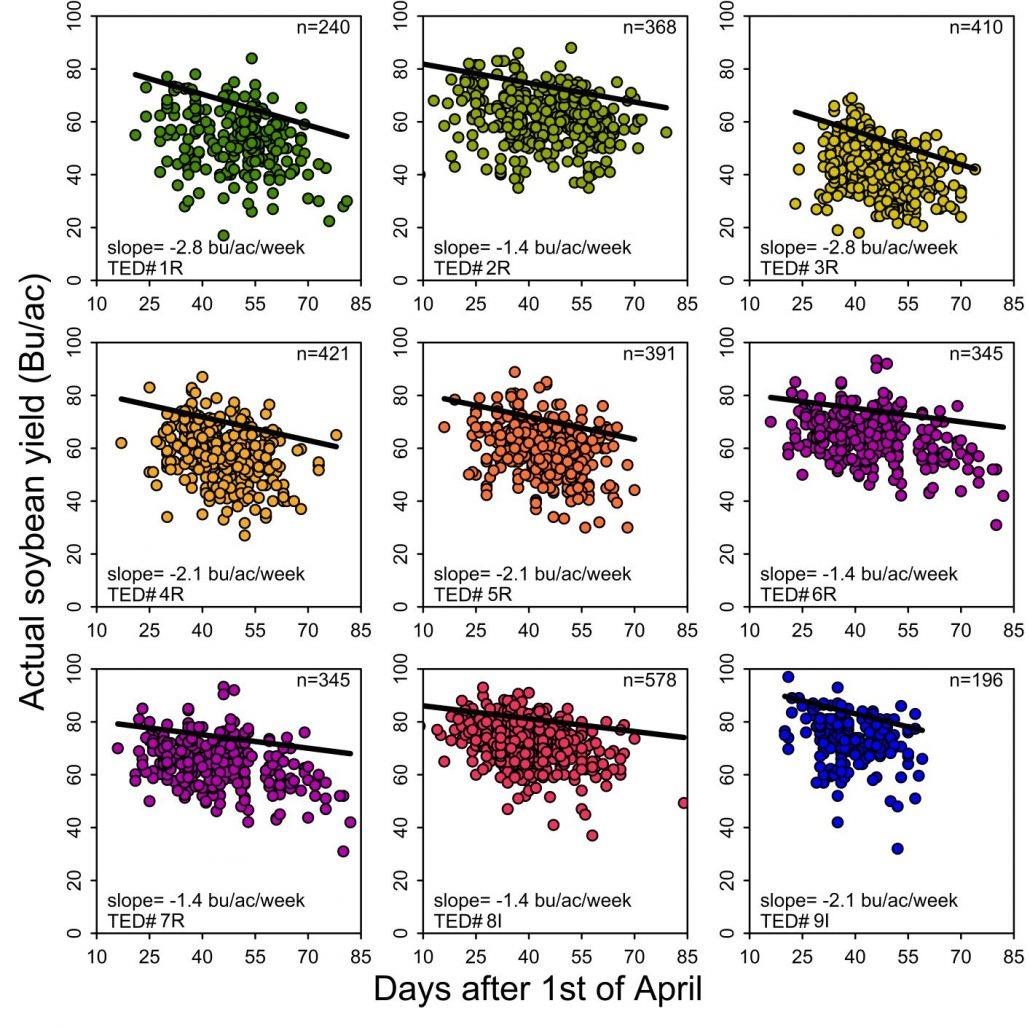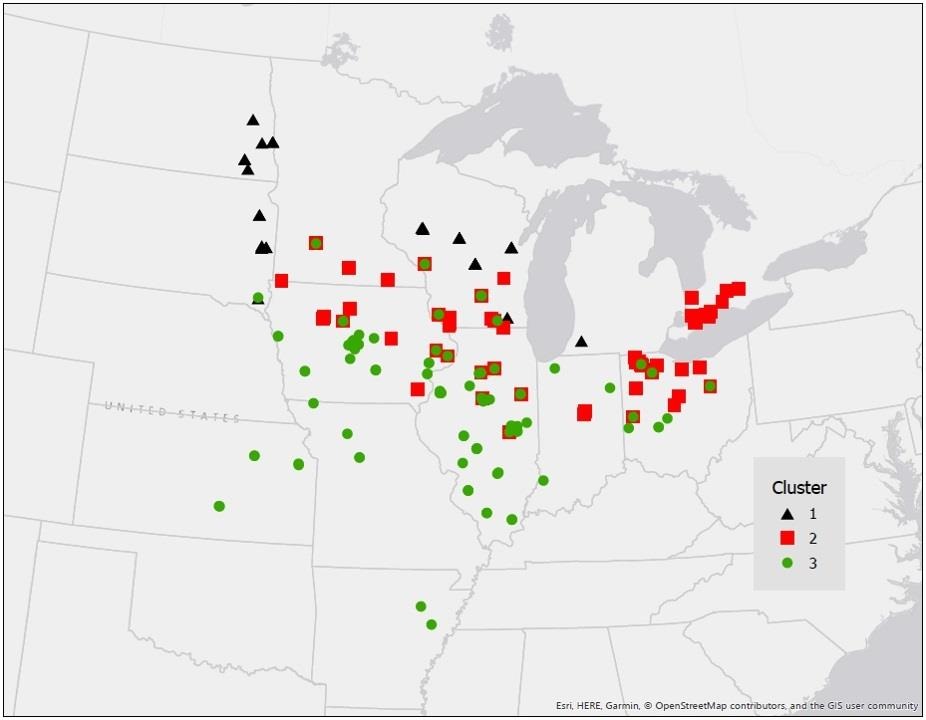By Shawn Conley
When I am asked a direct question from a farmer or a crop consultant my response is always as follows…Do you want the short answer or the long answer as I can say the same thing in 5 minutes or 5 hours. Their response to me is almost always the same…”Just the Facts Jack”. In this blog I will attempt to answer three very agronomically important and challenging questions in a very succinct manner. However as we all know brevity can be a gift or a curse depending upon the context of the question. With that being said here we go!
Question #1. When should I start planting soybean? My general response is to start planting your soybean crop ~7 to 10 days before you start putting your corn in the ground with the caveat that the soil is fit and you are following your crop insurance replant dates (FYI: a team of us are revisiting the RMA dates for U.S. soybean growers). We have measured soybean yield loss due to delayed planting date as early as ~April 25th however the rapid yield decline (up to 0.5+ bpa per day) occurs at ~May 10th. As you would expect the magnitude of this planting date yield response is soil and climate dependent and yield losses in some areas (TED’s) where as high as 2.8 bpa per week for delayed planting (Figures 1 and 2). For a deeper dig please review the below supplemental documents.

Figure 1. Map of the North Central US region showing nine technology extrapolation domains (TEDs) used in this analysis.

Figure 2. Producer soybean yield plotted against planting date in 9 technology extrapolation domains (TED) in the NC USA region.
Question #2. What is the optimal soybean seeding rate? The quest for the optimal agronomic soybean seeding rate for yield vs. the optimal economic seeding rate has been an ongoing debate. Fortunately a large group of academics and industry (thank you Corteva) were able to combine data sets and address this question (Figure 3). Our results suggest that for “on-time” soybean planting dates the optimal agronomic soybean seeding rate to achieve 99% yield potential ranged from 237,000 to 128,000 seeds per acre (assuming 90% germ) across environments; whereas the optimal economic soybean seeding rate ranged from 157,000 to 103,000 seeds per acre. Thankfully this roughly confirms my original recommendation that you buy a bag an acre (140K) and place ~20% more seed on the low yielding acres and ~20% less on the high yielding acres. If planting is delayed however we do recommend that you increase your seeding rate accordingly (Adjust Your Seeding Rate (Higher) But Not Your Maturity Group For Late May Planted Soybean ). For a deeper dig please review the below supplemental document.

Figure 3. Location of 211 trial site-years that are included in the database and their respective environmental cluster classifications.
Table 1. Agronomic and Economic Optimal Soybean Seeding Rates by Environmental Cluster.
| | Cluster 1 | Cluster 2 | Cluster 3 |
| Yield level (bu a-1) | Agronomic/(Economic) Optimal Seeding Rate1,2 |
| < 58 | 237/(133) | 170/(136) | 130/(103) |
| 58 – 71 | 168/(138) | 145/(157) | 136/(121) |
| > 72 | 154/(119) | 128/(122) | 142/(145) |
1Agronomic optimal seeding rate (x1000 seeds) based on 99% maximum yield level.
2Economic analysis based on $62 a unit (140k) for seed and $9 a bushel pricing; soybean price and seed cost fluctuations will change the EOSR.
Question #3. When do I use a soybean seed treatment? I purposely placed this questions last as I know it will draw significant ire; however the data are what they are. Soybean seed treatments should only be used in some early planted soybean situations and/or if you have a history of or have scouted for an insect (i.e. Bean leaf beetle) or a pathogen (i.e. SDS) that exceeds economic thresholds. For a deeper dig please review the below supplemental document.
Th-th-th-that’s all folks!
Source : wisc.edu